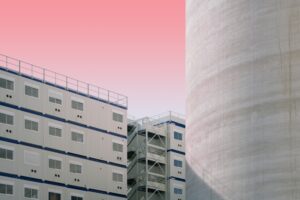
Multi-Level Industrial Buildings: A Growing Trend
In recent years, a new trend has emerged – a rise in multi-level industrial buildings.
Traditionally, industrial structures were synonymous with massive, single-level facilities, but a paradigm shift is now taking place.

The article explores the reasons for the increasing popularity of multi-level industrial buildings, as well as the factors that are fueling this growth.
Understanding the Shift
To understand this trend, it’s important to acknowledge the changing dynamics of industrial requirements. The conventional approach of vast, horizontally expansive factories is facing challenges in densely populated urban areas.
Land scarcity and the need for efficient space utilization are compelling industries to look upwards. Multi-level industrial buildings provide an innovative solution, maximizing productivity within limited spatial constraints.
The Reasons Behind the Trend of Multi-Level Industrial Buildings
Efficiency in Space Utilization
One of the primary drivers behind the surge in multi-level industrial buildings is the efficient utilization of available space. With vertical expansion, businesses can optimize their footprint, accommodating various production units on different levels.
This not only addresses the issue of land scarcity but also encourages a more organized and streamlined workflow.
Technological Advancements in Construction
Advancements in construction technology have played a pivotal role in making multi-level industrial buildings a viable and cost-effective option. Enhanced structural engineering techniques and materials have improved the capacity of buildings to withstand the vertical load, ensuring safety and durability.
This, coupled with innovations in transport systems within these structures, has further fueled their feasibility.
Environmental Sustainability
The environmental impact of industrial activities is a growing concern globally. Multi-level industrial buildings present an eco-friendly alternative by reducing the need for extensive land use.
Vertical construction minimizes the disruption of natural habitats and ecosystems, aligning with the growing emphasis on sustainable industrial practices.
Flexibility in Design and Functionality
Multi-level industrial buildings offer a level of design flexibility that traditional structures struggle to match.
Each floor can be customized to specific functions, allowing for a more customized approach to industrial processes. This adaptability is particularly advantageous for industries with diverse production requirements.
The Role of VMS Consultants in Shaping the Future
During the transition towards multi-level industrial buildings, organizations need expert guidance. This is where VMS Consultants stand out as a shining example of excellence.
Based in Ahmedabad, Gujarat, VMS is at the forefront of providing Engineering, Architecture, and Project Management Services across a spectrum of industrial segments.
The trend of multi-level industrial buildings is on the rise as industries continue to evolve and urban spaces become more confined. The experience and dedication of VMS Consultants make them invaluable partners in navigating this exciting future of industrial development.
Let’s build the future together. Contact us today!




